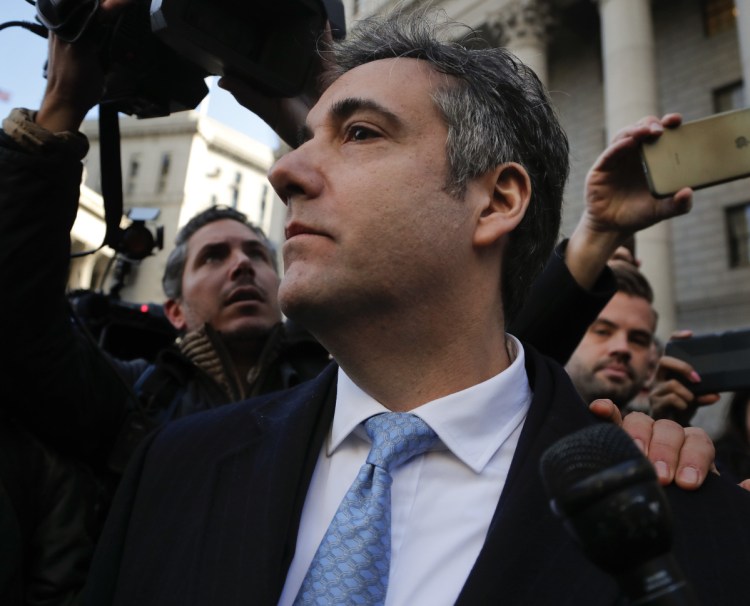There’s a moment in the detective movies where the hodge-podge of photos and note cards tacked to the wall suddenly all come together, revealing a solution to the mystery so simple nobody can believe it’s been staring them in the face all this time.
We are getting to that point in the Trump/Russia affair, and all the ribbons and arrows on special counsel Robert Mueller’s bulletin board are all pointing to the one theory that encompasses all of the facts.
And it’s that everyone thought Donald Trump was going to lose.
Not just the pollsters or the reporters or the liberal elite. Nobody thought he could win, not even Trump himself.
Thinking about it this way puts the question of collusion with Russia in a much different light. What exactly would you collude to do if you don’t think you can win? The answer is: Make a lot of money.
This was not a campaign that intended to capture the most powerful office in the world – using the help of a foreign adversary, if that’s what it took.
This was more of an elaborate public relations stunt, designed to hype a lucrative real estate play.
It went terribly wrong, however, when the impossible happened and the make-believe candidate became the real-life president.
Take, for instance, Michael Cohen’s guilty plea Thursday to a charge of lying to Congress. Cohen is Trump’s former personal lawyer and close business associate, usually described in the press as Trump’s “fixer.” (Trivia question: Who’s the first president in history to employ a “fixer?”).
Cohen revealed this week that he had lied when he testified about talks to build a Trump Tower in Moscow, with a $50 million penthouse for Russian President Vladimir Putin himself. The negotiations, Cohen now says, lasted well into the presidential campaign period, months longer than he had previously testified, and involved more consultation with Trump and his family than he had previously let on.
In other words, when Trump was saying nice things about Russia on the campaign trail, he was in secret negotiations with the Russian government about real estate.
Why? Because the thought he was going to lose the election.
When it was all over, he was hoping to make some money because that’s what he does. Everything is a marketing opportunity.
Trump’s flattery of Putin makes a lot more sense if you think of it as puffing up a business deal and not some geopolitical masterstroke.
This may not be the kind of cloak and dagger collusion that some people have expected, but it totally makes sense when you consider the business Trump is in.
He puts together deals to build Trump-branded property in cities around the world. Aside from some valuable real estate in New York City, his projects are not exactly in the world’s capitals. There’s a Trump hotel in Baku, Azerbaijan, and one in Panama, and a luxury condominium project in Mumbai, India.
These deals and more have been detailed in the excellent podcast “Trump Inc.,” a joint project of WNYC and ProPublica. What they have been showing is that Trump does a lot of business in countries that are infamous for being tolerant to corruption. Kind of like Russia.
WNYC’s Andrea Bernstein elegantly summarized the Cohen plea deal in a four-part tweet moments after the hearing. It went something like this:
— Cohen said that he spoke to a Kremlin official about a Trump Moscow deal.
— He spoke about it more than three times with Trump personally and with members of his family.
— He kept a “senior campaign official” in the loop.
— On the penalty of perjury, he covered it up.
The last point is the most intriguing, because if there was nothing illegal going on, why would he lie? What if the “collusion” that Mueller has been investigating turns out to be old-fashioned graft, where a candidate for the presidency used his high profile to promote his business and then lied about it when he accidentally won the election?
If this is where it ends up, people who were looking for super sophisticated international intrigue are going to be disappointed.
This wasn’t the Manchurian Candidate or some novel by John LeCarre. It’s more like an episode of “The Sopranos.”
But it all makes sense if you assume that from the start, everybody involved was positioning themselves for the day after Election Day, when somebody else was president.
Greg Kesich is the editorial page editor. He can be contacted at:
Twitter: gregkesich
Send questions/comments to the editors.


